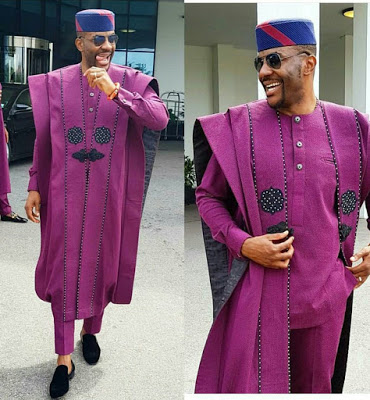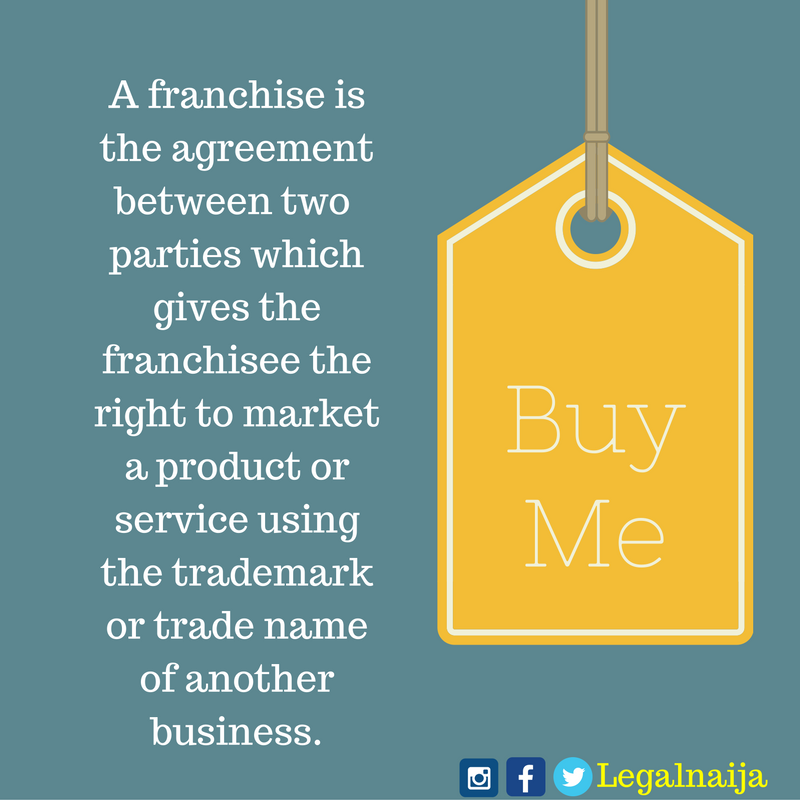
How Creatives Can Protect their Intellectual Property Rights | Adedunmade Onibokun

As an Artist,
Inventor, Photographer or a member of the creative industry, it takes a lot of
effort, skill and hard work to do what you do and it is a reasonable expectation
to be paid for your work. However, once work is made available to the public,
the chances of someone claiming the work as their own or reproducing it without
giving proper credit is extremely high in today’s technologically advanced and
share-friendly culture. Nothing is more infuriating than discovering that your
creative ability is being exploited by someone who has neither the permission
nor the right to do so.
Inventor, Photographer or a member of the creative industry, it takes a lot of
effort, skill and hard work to do what you do and it is a reasonable expectation
to be paid for your work. However, once work is made available to the public,
the chances of someone claiming the work as their own or reproducing it without
giving proper credit is extremely high in today’s technologically advanced and
share-friendly culture. Nothing is more infuriating than discovering that your
creative ability is being exploited by someone who has neither the permission
nor the right to do so.
Adequately
curbing piracy in Nigeria still requires a lot of effort despite the spirited actions
of several government agencies. Truth is, there really is no actual patent or
copyright police, roaming the streets on behalf of Creatives and looking to
investigate piracy, except for the few police raids on centers known for
selling or making pirated works. Most Creatives
therefore usually enforce their rights, themselves though our non – evolving laws
and the inadequacies of judicial enforcement are not encouraging.
curbing piracy in Nigeria still requires a lot of effort despite the spirited actions
of several government agencies. Truth is, there really is no actual patent or
copyright police, roaming the streets on behalf of Creatives and looking to
investigate piracy, except for the few police raids on centers known for
selling or making pirated works. Most Creatives
therefore usually enforce their rights, themselves though our non – evolving laws
and the inadequacies of judicial enforcement are not encouraging.
To protect your
Intellectual Property Rights (IPRs), the first thing to note is registration with
the relevant authority. IPRs are governed by the Trademarks Act, the Patents
and Designs Act, the Merchandise Marks Act and the Copyright Act, in
addition to the principles of common law.
Intellectual Property Rights (IPRs), the first thing to note is registration with
the relevant authority. IPRs are governed by the Trademarks Act, the Patents
and Designs Act, the Merchandise Marks Act and the Copyright Act, in
addition to the principles of common law.
The Trademarks Act
A trademark
consists of any word, symbol, or device used to distinguish the company’s goods
or services. A trademark is a recognizable sign, design, or expression which identifies
products or services of a particular source from those of others. The Act
provides that no
person shall be entitled to institute any proceeding to prevent, or to recover
damages for, the infringement of a trade mark except it is registered.
consists of any word, symbol, or device used to distinguish the company’s goods
or services. A trademark is a recognizable sign, design, or expression which identifies
products or services of a particular source from those of others. The Act
provides that no
person shall be entitled to institute any proceeding to prevent, or to recover
damages for, the infringement of a trade mark except it is registered.
The Patents and Designs Act
The Act
provides that an invention is patentable if it is new, results from inventive
activity and is capable of industrial application; or if it constitutes an
improvement upon a patented invention. Patents protect ideas that are novel,
useful, and non-obvious. When a patent expires which is usually about 20 years,
the item or process enters the public domain. Until that time, a patent holder
can prevent unauthorized use, manufacture, or sale of the invention.
provides that an invention is patentable if it is new, results from inventive
activity and is capable of industrial application; or if it constitutes an
improvement upon a patented invention. Patents protect ideas that are novel,
useful, and non-obvious. When a patent expires which is usually about 20 years,
the item or process enters the public domain. Until that time, a patent holder
can prevent unauthorized use, manufacture, or sale of the invention.
The Merchandise Marks Act
The Act relates
to fraudulent marks on merchandise and provides in Section 3, that anyone who
forges a trademark or assigns on goods a false trademark with intent to deceive
or has in his possession forged goods for sale shall be liable- on conviction before a High Court to imprisonment for a term of two years,
or to a fine, or to both and on summary conviction before a magistrate court to
imprisonment for a term of six months or to a fine.
to fraudulent marks on merchandise and provides in Section 3, that anyone who
forges a trademark or assigns on goods a false trademark with intent to deceive
or has in his possession forged goods for sale shall be liable- on conviction before a High Court to imprisonment for a term of two years,
or to a fine, or to both and on summary conviction before a magistrate court to
imprisonment for a term of six months or to a fine.
The Copyright Act
Copyright law
protects the creative expression of ideas. Ideas themselves may be protected by
patents, not copyrighted. Any creative work that has been fixed in a tangible
medium of expression, such as paper, software, or film, and that can be
reproduced or otherwise communicated exactly is automatically protected by
copyright law. Examples include art, songs, movies and writings. The digital
world is boundless and to protect a copyright, an artist may have to use
digital watermarks on their creations and put up a copyright notice on the web
page where your work is displayed.
protects the creative expression of ideas. Ideas themselves may be protected by
patents, not copyrighted. Any creative work that has been fixed in a tangible
medium of expression, such as paper, software, or film, and that can be
reproduced or otherwise communicated exactly is automatically protected by
copyright law. Examples include art, songs, movies and writings. The digital
world is boundless and to protect a copyright, an artist may have to use
digital watermarks on their creations and put up a copyright notice on the web
page where your work is displayed.
How to enforce IPRs
Having
registered your intellectual property, whether trademarks, copyrights or
patents; enforcing your legal rights against any person who may have infringed
on them is the second step to protecting your IPRs. IPRs are protected through
the registration of rights with the relevant registries and regulatory bodies
established by the Nigerian Government, such as the Trademarks, Patent and
Designs Registry. the Nigerian Copyright Commission (NCC), as well as other
related offices, such as the National Office for Technology Acquisition and
Promotion (NOTAP), the Standard Organization of Nigeria, and the National
Agency for Food and Drug Administration and Control (NAFDAC). All these offices
run their independent registries and often interface in the discharge of their
mandate.
registered your intellectual property, whether trademarks, copyrights or
patents; enforcing your legal rights against any person who may have infringed
on them is the second step to protecting your IPRs. IPRs are protected through
the registration of rights with the relevant registries and regulatory bodies
established by the Nigerian Government, such as the Trademarks, Patent and
Designs Registry. the Nigerian Copyright Commission (NCC), as well as other
related offices, such as the National Office for Technology Acquisition and
Promotion (NOTAP), the Standard Organization of Nigeria, and the National
Agency for Food and Drug Administration and Control (NAFDAC). All these offices
run their independent registries and often interface in the discharge of their
mandate.

·
National Agency For
Food And Drug Administration And Control (NAFDAC)
National Agency For
Food And Drug Administration And Control (NAFDAC)
NAFDAC is
empowered to regulate and control the importation, exportation, manufacture,
advertisement, distribution, sale and use of food, drugs, cosmetics, medical
devices, packaged water and chemicals, generally known as regulated products. Under
the provisions of various regulations and guidelines on registration, the
submission of evidence of ownership of trademark is a condition precedent for
the registration of branded regulated products. Where an infringed trademark is
used in respect of a product that is within the purview of NAFDAC powers, a
petition can be presented to NAFDAC in that respect.
empowered to regulate and control the importation, exportation, manufacture,
advertisement, distribution, sale and use of food, drugs, cosmetics, medical
devices, packaged water and chemicals, generally known as regulated products. Under
the provisions of various regulations and guidelines on registration, the
submission of evidence of ownership of trademark is a condition precedent for
the registration of branded regulated products. Where an infringed trademark is
used in respect of a product that is within the purview of NAFDAC powers, a
petition can be presented to NAFDAC in that respect.
·
The Nigeria Copyright Commission (NCC)
The Nigeria Copyright Commission (NCC)
The role of the
NCC is limited to works which are eligible for copyright protection under the
Act. It is the agency responsible for the enforcement of the Copyright Law in
Nigeria, carrying out raids and seizing items that are pirated, prosecuting
perpetrators and convicting them with copyright infringement. If a copyright is
infringed, a petition can be made to the NCC on registered copyrights.
NCC is limited to works which are eligible for copyright protection under the
Act. It is the agency responsible for the enforcement of the Copyright Law in
Nigeria, carrying out raids and seizing items that are pirated, prosecuting
perpetrators and convicting them with copyright infringement. If a copyright is
infringed, a petition can be made to the NCC on registered copyrights.
·
Nigerian Customs Service
Nigerian Customs Service
The new fiscal
policy of Nigeria, as contained in the Common External Tariff for 2008–2012
Schedule 4, provides the list of goods which are absolutely prohibited from
being imported. Specifically, Item 3 prohibits the importation of “all
counterfeited/pirated materials or articles including base or counterfeit coin
of any country.”
policy of Nigeria, as contained in the Common External Tariff for 2008–2012
Schedule 4, provides the list of goods which are absolutely prohibited from
being imported. Specifically, Item 3 prohibits the importation of “all
counterfeited/pirated materials or articles including base or counterfeit coin
of any country.”
·
The Nigerian Police
The Nigerian Police
Section 4 of
the Police Act provides for the general duties of the police and one of such
duties is the prevention
and detection of crime and the apprehension of offenders. As such crimes
bothering on criminal infringement of IPRs can be reported to the Police.
the Police Act provides for the general duties of the police and one of such
duties is the prevention
and detection of crime and the apprehension of offenders. As such crimes
bothering on criminal infringement of IPRs can be reported to the Police.
·
The Nigerian Intellectual Property Office (IPO)
The Nigerian Intellectual Property Office (IPO)
The IPO is an
arm of the Commercial Law Department under the Ministry of Trade and
Investment, and is also known as the Nigerian Trademarks, Patent and Designs
Registry. Applications challenging the grant of Trademarks either before or
after such registration can be made to the IPO.
arm of the Commercial Law Department under the Ministry of Trade and
Investment, and is also known as the Nigerian Trademarks, Patent and Designs
Registry. Applications challenging the grant of Trademarks either before or
after such registration can be made to the IPO.
·
The Federal High Court
The Federal High Court
The Federal High
Court is the court with jurisdiction to enforce IPRs and civil proceedings for
infringements can be instituted at the Federal High Court against any offender.
The Federal High court is also vested with the authority to hear criminal
matters bothering on the infringement of IPRs.
Court is the court with jurisdiction to enforce IPRs and civil proceedings for
infringements can be instituted at the Federal High Court against any offender.
The Federal High court is also vested with the authority to hear criminal
matters bothering on the infringement of IPRs.
It is
important that in Nigeria, there are several pieces of work that do not fall
under the protection of IPRs in Nigeria, including the style designs of fashion
designers, therefore a designer such as Ugo
Monye who made the popular native attire Ebuka Obi-Uchendu wore
cannot claim damages or infringement against any other designer who recreates
the outfit.
important that in Nigeria, there are several pieces of work that do not fall
under the protection of IPRs in Nigeria, including the style designs of fashion
designers, therefore a designer such as Ugo
Monye who made the popular native attire Ebuka Obi-Uchendu wore
cannot claim damages or infringement against any other designer who recreates
the outfit.
There
continues to be a call for a reform of Nigeria’s IP laws as most of the current
legislations are old and do not conform with today’s reality.
continues to be a call for a reform of Nigeria’s IP laws as most of the current
legislations are old and do not conform with today’s reality.
If you will like to read further on how to
legally protect your business or startup, here are 10
tips.
legally protect your business or startup, here are 10
tips.
Adedunmade Onibokun
Adetola Adeleye. (2016). INTELLECTUAL
PROPERTY RIGHTS ENFORCEMENT IN NIGERIA: REGULATORY AGENCIES TO THE RESCUE.Available:
http://pennjil.com/intellectual-property-rights-enforcement-in-nigeria-regulatory-agencies-to-the-rescue/.
Last accessed 2nd Feb, 2018 .
PROPERTY RIGHTS ENFORCEMENT IN NIGERIA: REGULATORY AGENCIES TO THE RESCUE.Available:
http://pennjil.com/intellectual-property-rights-enforcement-in-nigeria-regulatory-agencies-to-the-rescue/.
Last accessed 2nd Feb, 2018 .
Ray
Dickinson. (2017). What Can You Protect? Types of Intellectual
Property. Available: http://edwardlowe.org/what-can-you-protect-types-of-intellectual-property/.
Last accessed 2nd Feb, 2018.
Dickinson. (2017). What Can You Protect? Types of Intellectual
Property. Available: http://edwardlowe.org/what-can-you-protect-types-of-intellectual-property/.
Last accessed 2nd Feb, 2018.
Photo Credit – Pic 1 – www.guardianng.com ; Pic 2 – www.lindaikejisblog.com
NOTE: Please
note that this article is strictly for educational purposes and not for
commercial purposes. If you have any comments or remarks you may contact the
author.
note that this article is strictly for educational purposes and not for
commercial purposes. If you have any comments or remarks you may contact the
author.



